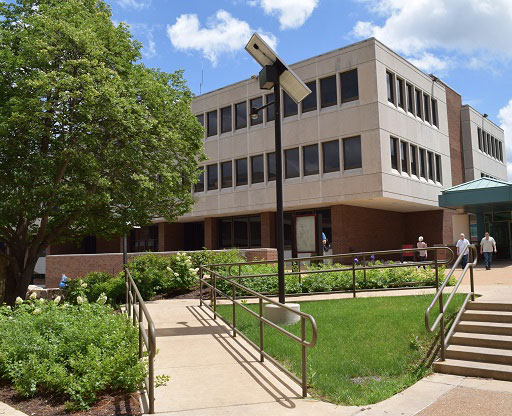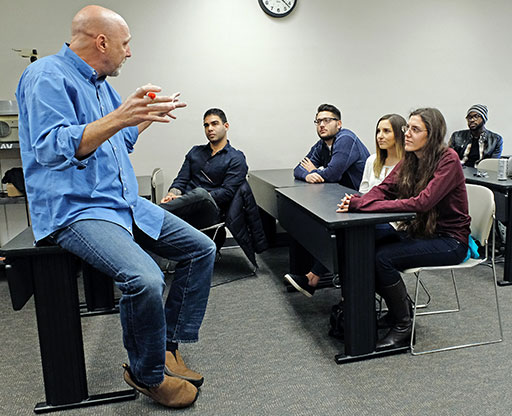Understand matter.
Physicists investigate the fundamental nature of forces and particles and the resulting states of matter that make up the physical world. Studying physics strengthens quantitative reasoning and problem solving skills that are valuable in areas beyond physics because students learn how to analyze complex problems, giving them a strong quantitative background that can be applied in any technical field.
Program type:
Major, BA
Format:
On-Campus
Take the next step
Request more information below:

Bachelor of Arts
Physics
The BA in Physics is designed to combine the rigorous study of physics with additional studies of languages and the liberal arts and is tailored to students wishing to preserve the option for specialization in graduate school without sacrificing the advantages of a liberal arts education. This program provides undergraduates with a broad-based education in the fundamental concepts of physics and with the experimental and theoretical skills essential to practicing scientists. This degree is ideal preparation for a career that combines science with other fields, such as science journalism, science policy or patent law.
Students seeking to major in physics are designated as ‘pre-physics majors’ until they have completed both Physics 2111 and Physics 2112 (or equivalent courses) with grades of C- or better.
Outcomes and Career Outlook
Upon completion of the BA in Physics, graduates will be able to understand basic physics concepts including classical mechanics, electricity, magnetism and modern physics; demonstrate proficiency in a foreign language; understand several advanced undergraduate areas of physics/astronomy, such as observational astrophysics, biophysics, quantum mechanics or experimental design; be skilled in problem solving, critical thinking and analytical reasoning as applied to scientific problems; be proficient communicators of scientific work results; conduct original scientific research as part of an interdisciplinary problem-solving team; identify possible errors in scientific data; and assess the significance of observed results.
Employment of Physicists is projected to grow up to 5% through 2032, with a median annual salary of $149,530, according to wage and employment data from U.S. Bureau of Labor Statistics.
149,530
5
Career Opportunities
- Science Journalist
- Science Policy Analyst
- Software Engineer
- Scientific Illustrator
- Science Museum Curator
- Data Analyst
- Physicist
Plan of study
All majors must meet the general education requirements of the university in addition to completing degree-specific curriculum requirements.
Review Full Degree Requirements Review Sample Four-Year Plan
Non-Missouri Residents: Prospective students are responsible for reviewing the UMSL state authorizations page to see if this program is offered in their state throughout their program and to review the licensure or certification requirements for the state in which they reside.
Student organizations
Make new friends and learn new skills by joining one of our Recognized Student Organizations. Here are several opportunities you may be interested in as a physics major:
- Physics and Astronomy Club
- Student Government Association
- Students of the University of Missouri
Honors College
The UMSL Honors College is a certificate program that can be paired with any major without adding extra classes or extending time to graduate. Classes in the Honors College are seminar-style, meaning that they are based in reading, writing, discussion, and critical thinking. This unique class format fosters an intellectual climate centered around democracy, civility and academic excellence.
Undergraduate research
We encourage and support students as they engage in exciting activities in and outside of the classroom that enrich their academic and professional understanding of their chosen area of study. All majors are encouraged to participate in Undergraduate Research and Scholarship to produce discipline-specific intellectual or creative innovations to their field.








